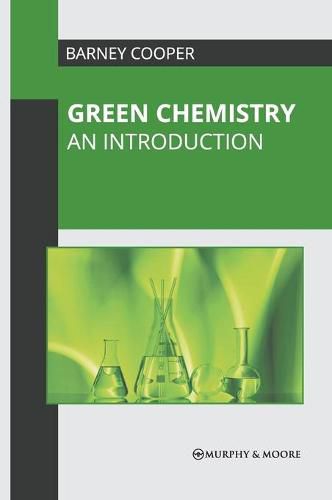Readings Newsletter
Become a Readings Member to make your shopping experience even easier.
Sign in or sign up for free!
You’re not far away from qualifying for FREE standard shipping within Australia
You’ve qualified for FREE standard shipping within Australia
The cart is loading…






Green chemistry is concerned with the study of designing of processes and products that reduce or eliminate the formation and use of hazardous substances. It deals with the environmental impact of chemistry. It is also referred to as sustainable chemistry as it deals with the problems of resource depletion and chemical pollution. The goal of this discipline is to be more resource efficient by finding ways to reduce consumption of these resources and formulate technological approaches to prevent pollution. Atom economy, use of renewable feedbacks, real-time analysis for pollution prevention, less hazardous chemical synthesis, inherently safer chemistry for accident prevention, design for degradation and design for energy efficiency are some of the principles on which the discipline operates. This book elucidates the concepts and innovative models around prospective developments with respect to this discipline. It is compiled in such a manner, that it will provide an in-depth knowledge about the theory and practice of green chemistry. Through this book, we attempt to further enlighten the readers about the new concepts in this field.
$9.00 standard shipping within Australia
FREE standard shipping within Australia for orders over $100.00
Express & International shipping calculated at checkout
Green chemistry is concerned with the study of designing of processes and products that reduce or eliminate the formation and use of hazardous substances. It deals with the environmental impact of chemistry. It is also referred to as sustainable chemistry as it deals with the problems of resource depletion and chemical pollution. The goal of this discipline is to be more resource efficient by finding ways to reduce consumption of these resources and formulate technological approaches to prevent pollution. Atom economy, use of renewable feedbacks, real-time analysis for pollution prevention, less hazardous chemical synthesis, inherently safer chemistry for accident prevention, design for degradation and design for energy efficiency are some of the principles on which the discipline operates. This book elucidates the concepts and innovative models around prospective developments with respect to this discipline. It is compiled in such a manner, that it will provide an in-depth knowledge about the theory and practice of green chemistry. Through this book, we attempt to further enlighten the readers about the new concepts in this field.